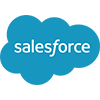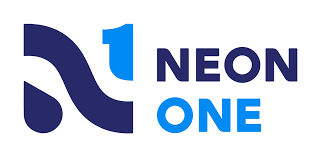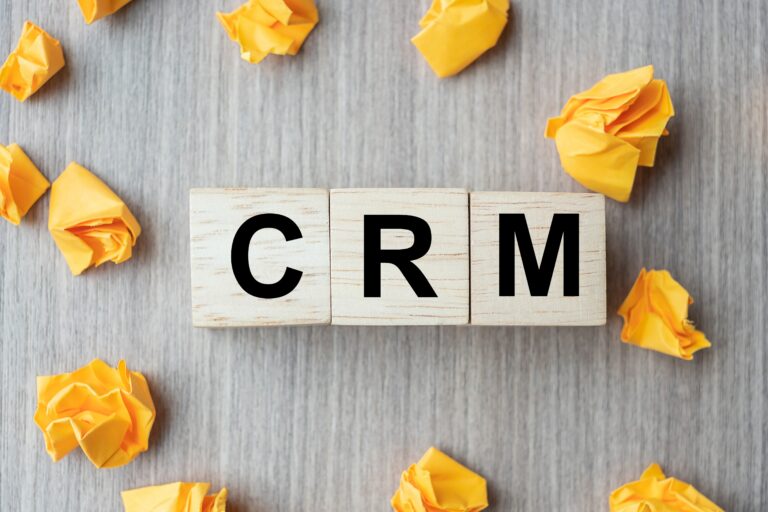Nonprofit Customer relationship management (CRM) software is a tool that organizes, manages, and tracks a nonprofit organization’s contacts and any interactions the sales, marketing, and customer service teams may have with those contacts. A Nonprofit CRM may also have special features that manage volunteers, fundraising drives, and audits.
CRM software has proven useful to so many industries that it’s often perceived as a kind of universal business operating system. With cloud-based installations and feature integrations growing exponentially every year, there are few things left that CRM software can’t do. But bigger isn’t always better, especially for niche markets that require specialization rather than large feature sets. In this buyer’s guide, we take a detailed look at the best nonprofit CRM software on the market today.
According to our expert analysis, the best nonprofit CRM solutions for 2023 include:
- Salesforce Nonprofit Cloud: Best for scalability
- Bloomerang: Best for donor retention
- Neon CRM: Best for comprehensive management
- DonorPerfect: Best for custom reporting
- HubSpot: Best for marketing automation
Our picks for the best project management software
Salesforce: Best for scalability
Pros
Cons

Salesforce Nonprofit Cloud, launched by Salesforce.org, is a part of Salesforce’s commitment to the nonprofit sector. Salesforce.org was established as a social enterprise in 2000, with a model to provide Salesforce’s technology to nonprofits and educational institutions at a reduced cost or for free. Over the years, Salesforce Nonprofit Cloud has evolved, incorporating feedback from the nonprofit community, to become a comprehensive solution that addresses the unique needs of nonprofits, helping them manage donors, fundraising, programs, and volunteers.
ALSO READ: How to Use CRM
Bloomerang: Best for donor retention
Pros
Cons

Launched in 2012 by Jay Love, a veteran in the nonprofit software industry, Bloomerang aims to improve donor retention and engagement. It offers features like donor management, fundraising, event planning, and reporting. Its user-friendly interface, robust data management, and seamless integration capabilities make it a popular choice among nonprofits.
Neon CRM: Best for comprehensive management
Pros
Cons

Neon CRM is a product of Neon One, a company dedicated to providing technology solutions for nonprofits. Founded in 2004, Neon One’s stated objectiveis to help nonprofits fulfill their missions by providing them with comprehensive tools to manage their operations more effectively. Neon CRM, their flagship product, offers a suite of tools including donor management, fundraising, event planning, and reporting. It’s designed to be user-friendly and customizable, allowing nonprofits to tailor the platform to their specific needs.
DonorPerfect: Best for custom reporting
Pros
Cons

DonorPerfect is a CRM solution developed by SofterWare, Inc. Designed specifically for nonprofits, it offers a suite of tools for donor management, fundraising, event planning, and custom reporting. Its reporting capabilities, in particular, stand out, allowing organizations to create custom reports and Key Performance Indicators (KPIs). With its user-friendly interface and flexible features, DonorPerfect caters to the unique needs of nonprofits, helping them streamline their operations and maximize their fundraising efforts.
DonorPerfect pricing is steeper than some of its competitors, so smaller nonprofits should balance the features available with budget considerations.
HubSpot: Best for marketing automation
Pros
Cons

Founded in 2004 by MIT graduates Brian and Dharmesh, HubSpot is a pioneer in inbound marketing, a strategy based on the idea that customers prefer to be helped rather than interrupted or harassed. HubSpot offers a comprehensive suite of tools, including a CRM, marketing, sales, and customer service modules, designed to help businesses grow better. Its capabilities range from lead generation and management to analytics, email marketing, and automation.
Find your new nonprofit CRM software
Differences in for-profit and nonprofit CRM software
With for-profit business models, CRM focuses primarily on leveraging relationships to increase revenue (directly or indirectly). The subjects, typically, are thought of as leads, contacts, or customers. Nonprofits maintain relationships with a more diverse support base, referred to as “constituents.” This is why, in the nonprofit sector, CRM has come to mean “constituent relationship management.” Constituents typically include:
- Donors
- Volunteers
- Members
- Alumni
- Vendors
- Students
- Partners
- Media Outlets
The diversity of constituents means that goals vary greatly depending on the relationship – you want donors to continue donating; you want volunteers to give their time and be productive; and you want media outlets to run positive stories about your organization. That means a one-size-fits-all approach is destined to leave certain groups unserved or uncultivated.
Nonprofits also face unique challenges like stringent regulatory constraints and tight budgets. According to the National Center for Charitable Statistics, there are 817,379 nonprofits with less than $100,000 in total revenue. That’s a significant figure, because it accounts for more than half of the 1.4 million nonprofit organizations in the U.S.
Donor management with a nonprofit CRM
Nonprofits are organized around a variety of different front-end missions, such as service, activism, advocacy, religious beliefs, and so on. But since they rely on charitable contributions for funding, the operational mission of nonprofits revolves around managing donors. Nonprofit CRM software—sometimes called “donor management software”—are uniquely suited to help nonprofits run operations on both sides of the desk.
Successful organizations understand this.
There is a strong association between using data-driven technology to manage constituents and succeeding as a nonprofit organization. About a third of top performers reported last year that using CRM technology correlated with donor contribution growth of 20 percent or more. Seventy percent of those organizations (compared to only 48 percent of everyone else) reported they were “very or somewhat satisfied” with their current donor management technology.
One of the biggest hitches for nonprofits is dealing with donor attrition. Attracting new donors is an involved but established process. Retaining current donors and capitalizing on their relationships, on the other hand, can be an uphill battle. Your organization must continually court them for renewed memberships, additional pledges, event attendance, community advocacy, and volunteer activities.
Nonprofit CRM software platforms provide valuable retention tools such as marketing automation, pledge management, and social media engagement—which, if used correctly, will give your organization the right amount of influence on the right constituents.
What are nonprofit CRM software features?
Using CRM software gives every nonprofit an upper hand when it comes to boosting donations, improving retention, and executing mission operations. But if you’re in the market for a CRM system, you should familiarize yourself with some of the more specific software features. Start by deciding which vendors offer what you need, and build a shortlist of products. We’ve compiled some primary feature categories to get you started.
Benefits of nonprofit CRM software
Nonprofit CRM software helps in managing your database of donors, volunteers and other stakeholders. It also allows you to track their activities and interactions they have with your organization over time. This way, you can identify which programs are most effective at engaging them and then replicate those that work well for future campaigns or events. Most of the data surrounding these key aspects can be neatly reported through easy-to-read dashboards and reports. This allows you to make quick, data-driven decisions.
The goal of this type of CRM software is to help nonprofits increase donations and volunteerism while improving the overall efficiency of their fundraising efforts. The following are some of the key benefits associated with using nonprofit CRM software that you won’t find with a standard CRM:
- Manage donor interactions
- Control fundraising campaigns
- Monitor gifts from donors
- Plan your organization’s events
- Log volunteer activity
- Some even provide accounting functionality
ALSO READ: Challenges of CRM
Choosing the best software for nonprofit CRM
Ready to start your nonprofit CRM software comparison? Our Technology Advisors are here to help you find the perfect tool for your company’s projects. Call for a free 5-minute consultation, or complete the form at the bottom of this page for fast, free recommendations based on your needs.




